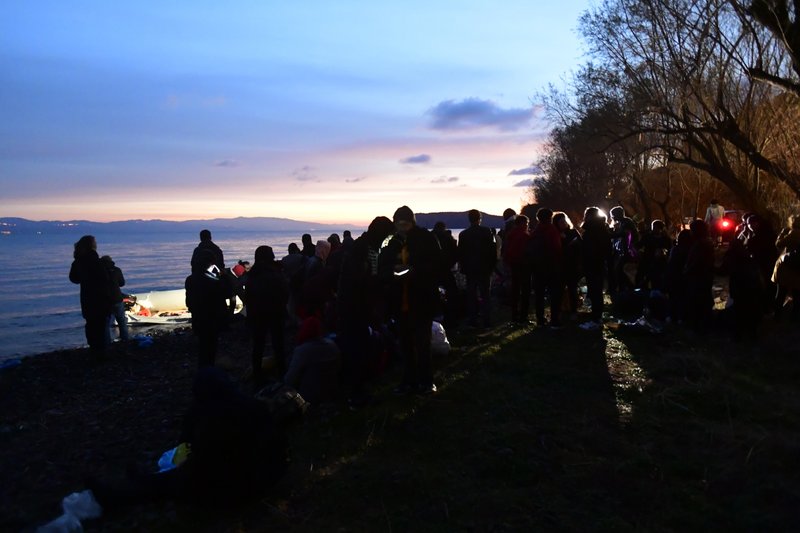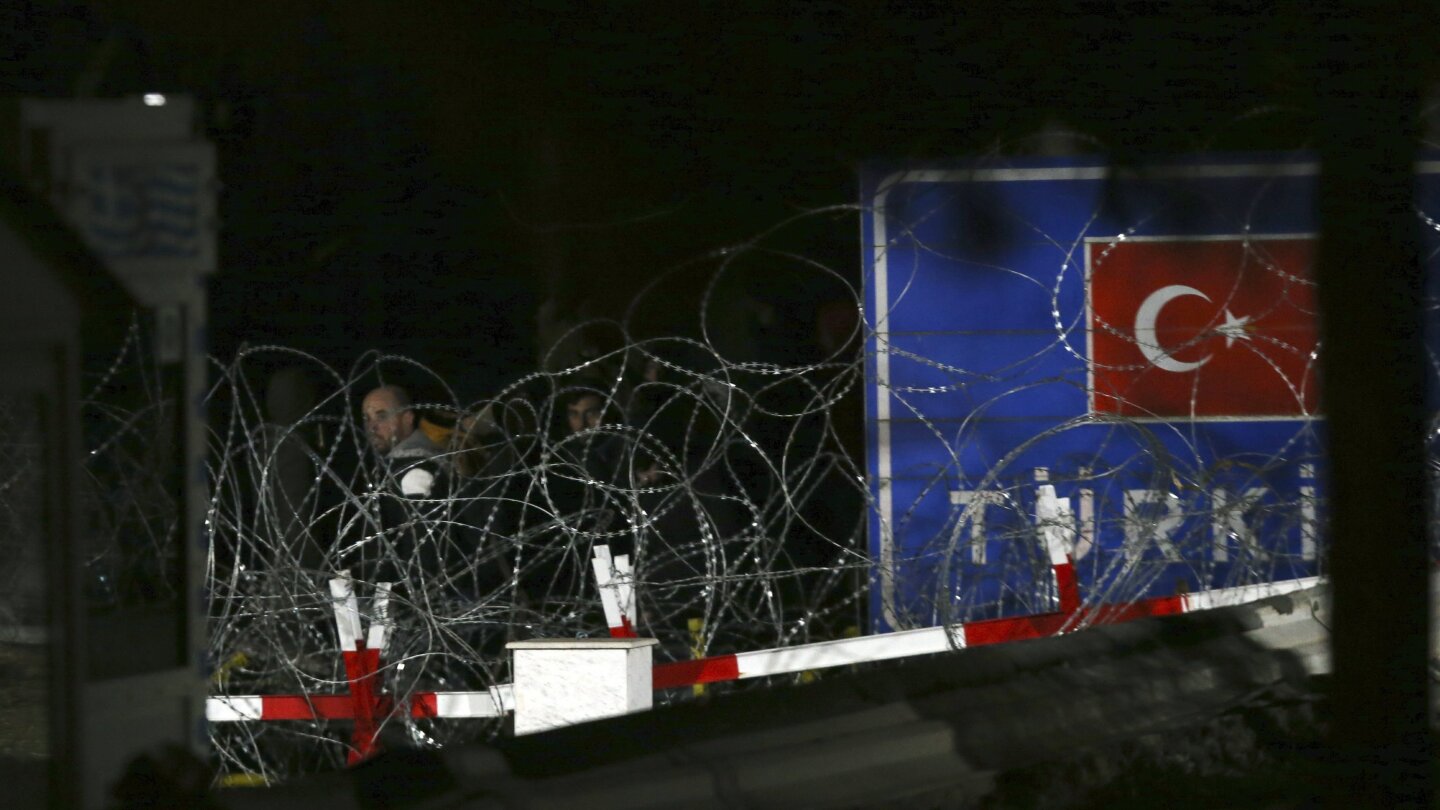KASTANIES, Greece (AP) — Thousands of migrants and refugees massed at Turkey's western frontier Sunday, trying to enter Greece by land and sea after Turkey said its borders were open to those hoping to head to Europe.

apnews.com
Syria says 2 warplanes downed by Turkey as tensions soar
By COSTAS KANTOURIS and ANDREW WILKSan hour ago

1 of 10
Migrants arrive at the village of Skala Sikaminias, on the Greek island of Lesbos, after crossing on a dinghy the Aegean sea from Turkey, Sunday, March 1, 2020. Turkey's President Recep Tayyip Erdogan said his country's borders with Europe were open Saturday, making good on a longstanding threat to let refugees into the continent as thousands of migrants gathered at the frontier with Greece. (AP Photo/Michael Varaklas)
KASTANIES, Greece (AP) — Syria’s official news agency said two of its warplane were shot down by Turkish forces inside northwest Syria, amid a military escalation there that’s led to growing direct clashes between Turkish and Syrian forces.
SANA says the jets were targeted over the Idlib region, and that the four pilots ejected with parachutes and landed safely.
Turkey’s Defense Ministry said it had shot down two SU-24 aircraft and destroyed air defense systems after one of its aerial drones was downed. Earlier, Syrian military-run media said it had downed a drone inside northwest Syria, and was closing its airspace for any flights or drones across the country’s northwestern region. It said any aircraft that penetrates Syrian airspace will be treated as hostile and shot down.
The Syrian announcement came after two days of Turkish drone attacks in Idlib province that Syrian activists said caused heavy losses to Syrian government forces. These confrontations have added to soaring tensions between Turkey and Russia, which support opposing sides of the Syrian civil war.
Meanwhile, Turkish President Recep Tayyip Erdogan had on Saturday announced his country opened its western borders to migrants and refugees hoping to head into the European Union. The United Nations said Sunday that at least 13,000 people were massed on Turkey’s land border with Greece,
Erdogan did not explicitly link his decision to open the gates to Europe to the military escalation in Syria’s northwestern Idlib province. However, he has warned that Turkey “can’t handle a new wave of migration,” an apparent reference to Idlib where hundreds of thousands of desperate Syrian civilians fleeing Syrian troop advances have moved toward the Turkish border.
Turkish Defense Minsiter Hulusi Akar, speaking from military headquarters near the Syrian border, said Turkey aimed to confront Syrian government forces rather than Russian troops. He called on Moscow to persuade Syrian President Bashar Assad to withdraw to 2018 cease-fire lines on the edges of Idlib.
Referring to losses inflicted on Syria, he said Turkey had “neutralized” more than 2,200 Syrian troops, 103 tanks and eight helicopters.
“The Spring Shield operation, which was launched following the abominable attack in Idlib on Feb. 27, continues successfully,” Akar said, referring to air strikes that killed 33 Turkish soldiers.
The operation is Turkey’s fourth in the war-torn country since 2016.
The heavy fighting in northwest Syria has also triggered a humanitarian catastrophe and the single largest wave of displacement in the nine-year Syrian civil war.
Ankara is worried it might come under renewed international pressure to open its now sealed border with Syria and offer refuge to hundreds of thousands more Syrian civilians. Turkey already hosts 3.6 million Syrian refugees.
Turkish President Recep Tayyip Erdogan’s decision to open his country’s borders with Europe made good on a longstanding threat to let refugees into the continent. His announcement marked a dramatic departure from the current policy and an apparent attempt to pressure Europe into offering Turkey more support in dealing with the fallout from the Syrian war to its south.
The U.N.’s International Organization for Migration said Sunday that by the previous evening, its staff working along the Turkish-Greek land border “had observed at least 13,000 people gathered at the formal border crossing points at Pazarkule and Ipsala and multiple informal border crossings, in groups of between several dozen and more than 3,000.”


